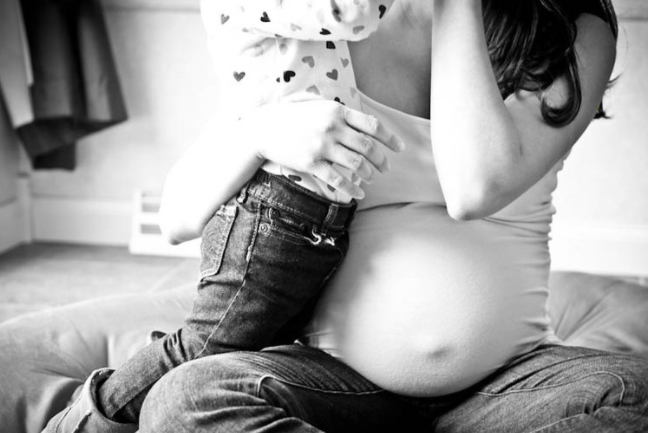I was nine days shy of my 34th birthday when I had a baby.
And it’s taken me almost nine years to adjust to motherhood.
Nobody really mentions that the transition from woman to mother is long, arduous, and sometimes painful. It’s not that motherhood doesn’t bring joy or pleasure, it’s that suddenly society sees us differently.
In our culture, mothers are seen as necessary martyrs. We are, of course, to ensure that we exercise “self-care” and “take breaks” but this advice is given as a tool to ensure that we are available to give our best to our children and actually has little to do with giving our best to ourselves.
Women are told that we are to experience a “love like no other” the moment we give birth and this necessarily demands that “the children come first.”
Even writing this will stir ire, as I expose myself as a candidate for being “bad mother” if I do not tow the party line and claim that my child is my first priority at all times, during every moment of my life.
Factually, my son is not always my top priority.
This demand to put him first is not only unreasonable but it also gives women no space or time to adjust to the process of sacrificing everything she is to become something else. Nobody tells you how to be a selfless martyr, it’s just supposed to happen instantly the moment you make eye contact with the baby.
Nobody demands this of men, by the way.
This process does happen instantly for some women, but for those who it does not, what then? What if it takes 10,000 hours? What if it takes nine years? What if we come undone in the meantime?
Mothers are the only people who are not allowed to come undone.
When a woman is childless, she can be a in a dress, dancing and drinking in a nightclub, and it’s a mess that’s culturally seen as okay. Fun, even. The moment that same woman becomes a mother and is in a nightclub, she is seen as negligent, unattractive, shameful. Why isn’t she at home, where she belongs?
As if she has no right to have friends, hobbies, fun, or a self-identity.
I recall a woman marching up to a table I was sharing with my friend Donald in a West Village restaurant. She demanded to know why I had my baby in a restaurant “at this time of night.” She let me know that she had five children and she’d done thing correctly by leaving them at home “where they belong.”
In the meantime, my baby hadn’t squalled, and he was tied to my body the entire time. This was unsolicited advice at best, and rude at worst.
For what she didn’t know was that my baby cried 10-12 hours a day, and the only time he didn’t was when I was wearing him. That dinner was my sanity for the day—and probably the week—but as a mother, it was also my shame.
Public scrutiny about my shameful parenting choices overtook my personal need for a friend, for food, for normalcy.
Nobody ever told me I would no longer be allowed to have needs of my own, or that every decision I made would be under a cultural microscope.
There are so many ways to parent but then it becomes paralytic. In our society, there is a “correct” way to mother. This takes time to get used to. As a mother, I felt more connected to my gender, like I had a deeper understanding of what it is to be female. And I also joined a community where it’s shameful to show mess, have a mommy tummy, or to yell at your child.
Almost every woman I know has come undone. Motherhood leaves a trail of tears, frustration, and boredom, but we are never to speak of any of these, and are simply to paste the scrapbook of smiles online and keep the facade alive.
Nobody ever talks about the loss or mourning of the life of a woman before she is a mother. The life of carefree mistakes or imperfections, the life where self-exploration is tolerated and encouraged. A time of life when women are celebrated for our differences and unique qualities and characteristics.
As a mother, we must meet expectations, which are not of our own making.
I recently spoke to a friend about her sense of grief and loss when she became a mother. And why should this not be? It’s one of life’s most significant changes. And more of us are making this shift in our 30s, when we already are grown-ass adults, with jobs and hobbies and a developed sense of who we are. It seems obvious that the birth of a mother includes the loss of self.
It’s culturally acceptable to recognize that men have a midlife crisis when they lose this carefree edge of youth, but mothers must be strong and never speak of the edge of loss.
My child is a lovely human, and he’s abundantly loved by me. He’s a good kid.
In speaking of this, I want to be clear that I do not regret having a child, and I am a normal person, not a selfish or unprepared one. But we could acknowledge that the process of becoming a mother doesn’t necessarily happen before we are dismissed from the hospital.
The process of motherhood is one of the most significant adjustments of life, where our time is not our own, and our expectations are not either. Where we must always be nurturing and happy and giving and selfless.
The birth of a mother is the death of a self. And it takes time to grieve.
~







Read 34 comments and reply